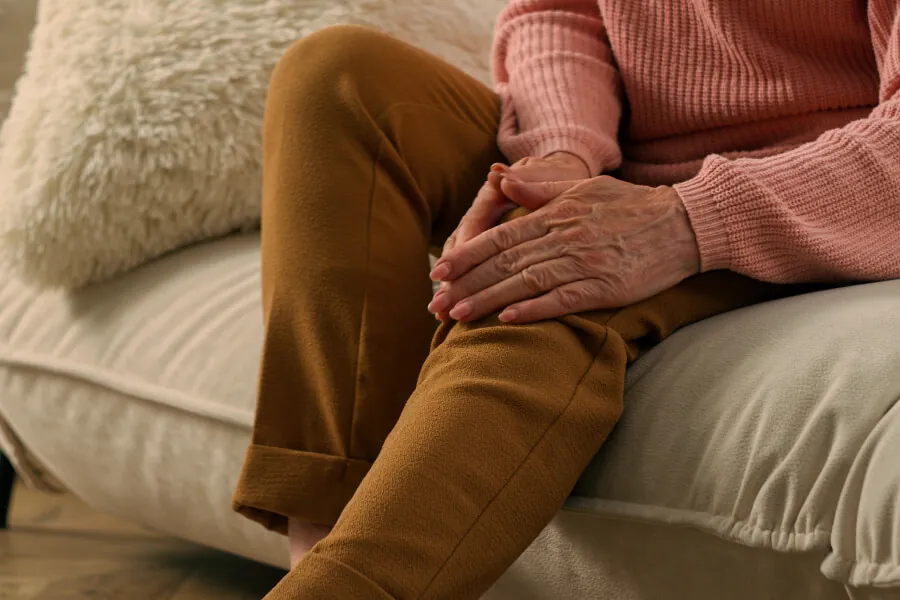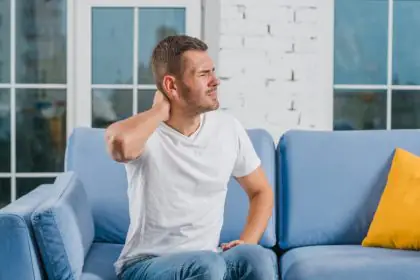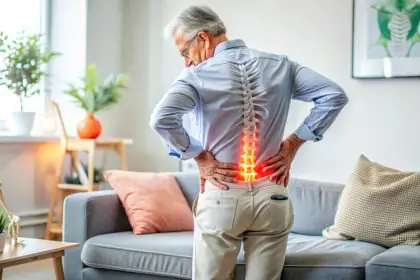Knee pain is a common discomfort that affects people of all ages. It can be caused by a variety of factors, such as injuries, arthritis, overuse, or even poor posture. While medical treatments are available, many turn to time-tested home remedies for knee pain to relieve pain and inflammation.
In this blog, we will honor the wisdom of our grandmothers and explore 10 effective home remedies for knee pain. We will discover the common causes of knee pain, tips for preventing it, and when to seek medical attention.
Causes of Knee Pain
80% of people suffer from knee pain.
The causes of knee pain are diverse, from acute injuries to chronic conditions. Among the most common are:
- Injuries: Sprains, strains, ligament or meniscus tears, fractures.
- Arthritis: Osteoarthritis, rheumatoid arthritis, gout.
- Overuse: Sports activities, overworking, repetitive activities.
- Medical conditions: Obesity, diabetes, autoimmune diseases.
- Postural problems: Poor alignment, flat feet, muscle imbalances.
- Aging: Natural wear and tear of joints over time.
Other Cause
Patellofemoral pain syndrome is a general term that refers to pain arising between the kneecap and the underlying thighbone. It’s common in athletes; in young adults, especially those whose kneecap doesn’t track properly in its groove; and in older adults, who usually develop the condition as a result of arthritis of the kneecap.
10 Home Remedies for Knee Pain Relief
- Rest: It’s essential to give the knee rest to allow for recovery. Avoid activities that cause pain.
- Ice: Apply cold compresses wrapped in a towel for 15-20 minutes several times a day to reduce inflammation.
- Warm Compresses: Once the initial inflammation has subsided, apply warm compresses to relax muscles and improve circulation.
- Elevation: Keep the knee elevated above heart level to reduce swelling.
- Bracing: Elastic bandages or a knee brace can provide support and reduce pain.
- Gentle Exercise: Once acute pain has decreased, engage in low-impact exercises like swimming or cycling to strengthen muscles and improve flexibility.
- Weight Loss: If overweight, even losing a small amount of weight can relieve pressure on the knees.
- Anti-inflammatory Diet: Consume omega-3-rich foods like fish, nuts, and seeds, and limit processed, sugary foods, and red meats.
- Supplements: Some supplements like glucosamine, chondroitin, and turmeric may help relieve arthritis pain. Consult your doctor before taking any supplement.
- Massages: A gentle massage on the knee and surrounding muscles can help relax tension and improve circulation.
How to Quickly Relieve Knee Pain
For quick relief from knee pain, you can try the following:
Take over-the-counter pain relievers: Ibuprofen, acetaminophen, or naproxen can help reduce pain and inflammation.
Apply topical pain relief cream: Creams containing capsaicin or menthol can provide temporary pain relief.
Use a cane or walker: These devices can help reduce the load on the knee and decrease pain while walking.
Knee Pain When Squatting and Standing Up
If you experience knee pain when squatting and standing up, you may have cartilage or meniscus issues. In these cases, it’s important to consult a doctor for proper diagnosis and treatment.
Medical Treatments for Knee Pain
Depending on the cause and severity of knee pain, your doctor may recommend a variety of medical treatments, such as:
Physical Therapy: Specific exercises to strengthen muscles and improve knee flexibility.
Injections: Corticosteroid or hyaluronic acid injections to reduce inflammation and pain.
Surgery: In severe cases, surgery may be necessary to repair joint damage or replace the knee.
Tips for People with Knee Arthritis
If you have knee arthritis, follow these tips to manage pain and improve your quality of life:
- Maintain a healthy weight.
- Exercise regularly.
- Apply heat or ice as needed.
Take over-the-counter or prescribed pain relievers as directed by your doctor.
FAQs
What are some common causes of knee pain?
Knee pain can be caused by various reasons, such as injuries, aging wear and tear, overuse, or medical conditions like arthritis. But with the right remedies for knee pain to follow you will get a relief.
How can I quickly get home remedies for knee pain at home?
To quickly relieve knee pain, you can try applying cold compresses, resting the affected knee, elevating the leg to reduce pressure, and taking over-the-counter pain relievers as directed on the packaging.
What should I do if I feel knee pain when squatting or standing up?
If you experience pain when squatting or standing up, it’s important to practice proper squatting techniques, such as keeping your back straight and bending your knees while keeping your heels on the ground. You may also consider using knee pads or supports.
When should I seek medical attention for knee pain?
You should seek medical attention if knee pain persists or worsens despite trying home remedies for knee pain, if you experience severe swelling or redness, or if you have difficulty moving the knee or bearing weight on it.
What advice can you offer for people suffering from knee arthritis?
For those with knee arthritis, it’s important to follow a comprehensive care plan that includes regular exercise to strengthen muscles and improve flexibility, maintaining a healthy weight, remedies for knee pain, wearing appropriate footwear, and following medical advice regarding medications and treatments.
Summary
Knee pain can be a debilitating experience, but with the right approach and proper home remedies for knee pain, you can find relief and improve your quality of life.
From cold and hot compresses to massages with essential oils and gentle exercises, grandmother’s healing touch in remedies for knee pain offers a range of natural and effective options for caring for your knees.
Remember to listen to your body, take the right remedies for knee pain, consult a doctor if necessary, and take a holistic approach to knee care. Here’s to happy and healthy knees!





